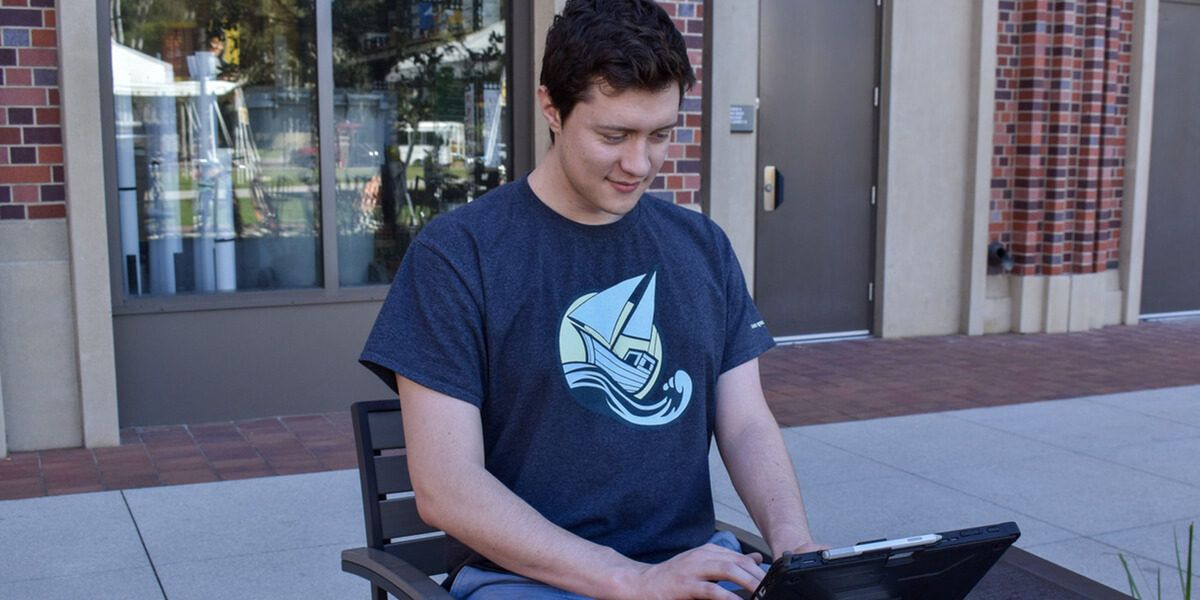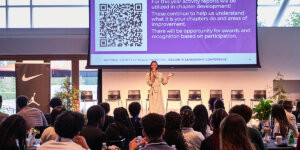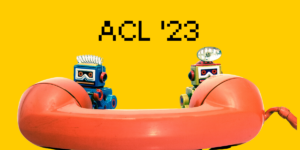
Picture of David Barrett (’22) Photo Credit: Melisa Cabello-Cuahutle
When David Barrett first came to USC, he was a mathematics and economics major with dreams of becoming an investment banker. But not even a week later, at orientation, he decided to switch to the Computer Science Games program at the USC Viterbi School of Engineering.
“If you love what you do, you never have to work a day in your life,” he thought.
Barrett is passionate about games, and his favorite thing about them is how they can bring people together. He even recalls how he has met most of his friends through games. Almost four years since he changed majors, Barrett discovered what he wanted to do: make games accessible.
Originally from Santa Clarita, CA, one of the reasons Barrett first decided to attend USC was because of its prestigious Games Program. In 2021, USC’s program was number one in the nation, according to the Princeton Review.
“I always liked playing games. I think I’ve made most of my friends through playing games, and I guess I just want to pay that forward,” said Barrett. “I hope that I can help give that experience to other people.”
Just like many technologies, games need to be adapted to fit a wide range of needs. For example, if a game has a reliance on color features, color-blind players might not be able to see these features. According to Barrett, this can be fixed by adding a pattern or a simple color-blind filter.
Other ways to make games accessible: allow players to move through text messages that appear on their screen, at their own pace and to use clear, simple language, according to the Game Accessibility Guidelines. To help with speech disabilities, games can also make sure that speech input is a supplementary, not required, option.
Because of this wide range of needs, there is no “one size that fits all,” so Barrett usually improves accessibility in his games based on feedback from players.
CREATING IT FOR EVERYONE
On one occasion he was working on a virtual reality (VR) game, called Detour Bus, which usually requires two controllers to play.
“We had one play-tester who was a veteran who didn’t have one of their arms,” explained Barret. “So we decided to make an alternate control mode so the game could be entirely playable with just one hand. And that turned out to be pretty successful.”
The biggest misconception about accessibility in gaming? According to Barrett, making games accessible is not only useful for people with disabilities. “The fact of the matter is that’s not true; a lot of features that are implemented to be accessible can actually benefit many more people,” explained Barrett. “For instance, plenty of people use subtitles who don’t have any sort of impairment of hearing.”
MAKING IT HAPPEN
Barrett says he first got involved with accessibility in gaming by chance. Originally, to boost his engineering experience, he embarked on an internship with a company owned by USC Adjunct Lecturer Heather Desurvire, of the USC School of Cinematic Arts, an expert in user experience (UX) research, or the study of target users to inform the product design process.
“I applied, I got the job and I did some user research work and kind of just continued from there,” remembers Barrett.
Desurvire remembers Barrett as “passionate about creating good player experiences,” and making sure that all users have the best experience possible.
Last year, Barrett was also one of the five USC Games recipients of a scholarship to attend the Able Gamers Charity course in accessibility, allowing him to learn about different APX gaming patterns that make the games more accessible. The course consisted of a two-day training program, in which he learned to implement different levels of accessibility, starting with basic methods and then moving to more advanced techniques. Because of it, Barrett got his APX certificate, making him a certified practitioner.
In his last semester at USC, Barrett is currently working on a Greek mythology-inspired game called Charon, in which the user rows the boat down the River Styx to Hades. Much like his previous projects, Barrett is an engineer in the project but is also in charge of making sure the game is as usable as possible, that is, that the game is accessible for as many people as possible.
THE NEXT ROUND
After graduation, Garrett hopes to continue to work on multiplayer games, games that are “pretty much joyful, lift people up, feel-good kind of games.” He hopes to one day speak at the Game Developers Conference, an annual conference for video game developers, and maybe one day win the Game of the Year award.
In the meantime, he is trying to learn to play the piano while focusing on finishing up his game Charon before his May graduation.
While accessibility was not his goal in life, Barrett has found a true purpose with it. After all, games are meant to be enjoyed and bring people together, why not make them for everyone?
“It’s not just games that are made more difficult when you have a disability. I feel like we owe it to people to try to make their lives a little bit easier, in whatever way you can,” said Barrett. “It kind of defeats the purpose of every other area of development if you’re just making a game that people can’t even play. What’s the point?”
Published on April 12th, 2022
Last updated on May 16th, 2024












